Royalty row reaches schools
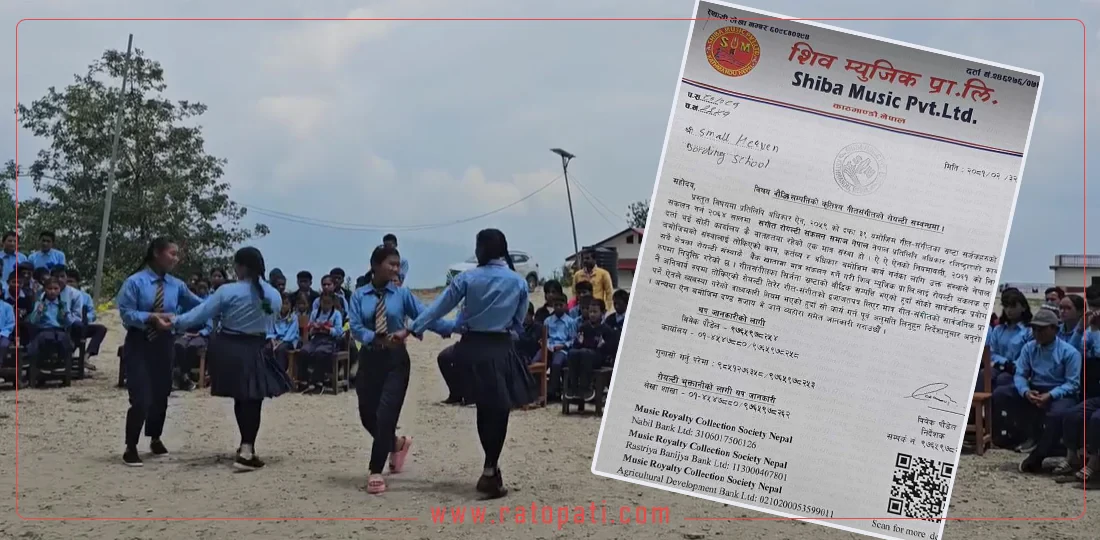
Kathmandu: Amrit Gurung, the lead singer of the folk rock band Nepathya, wrote on Friday on the social network X, "Students do not have to pay us royalties to dance to our songs."
Gurung said this after a music company started writing to schools to pay the royalties if they are to play songs in school functions.
Gurung's displeasure was clearly visible and he was referring to the steps taken by Shiva Music Pvt. Ltd. Gurung' s post on X (formerly known as Twitter) has now caused a debate on social media. Netizens have started taking sides.
Some are debating for the proposal of Shiva Music while others are simply disgruntled by the move. While the issue is being debated, the 'Music Royalty Collection Society' says that schools should also pay royalties. The society is of the opinion that the school should also pay the royalty of the music used in school functions except for teaching-learning purposes.
Badri Pandey, General Secretary of Music Royalty Collection Society, responded that he could not comprehend what singer Amrit Gurung was trying to express from the social media post.
Nepathya is a renowned musical band with both national and international fan base and Amrit Gurung is its lead singer. "We understand that the singer himself has a lot of knowledge about copyright and royalty," Pandey said, "I had never imagined that he would speak like this on the issue of royalty and copyright."
He said that paying royalties for intellectual property is a common practice.
Pandey said, "Our stance on royalty issue is not concerned with the teaching of music in any academia regarding the tutorials on how to create music."
"Songs may be used in musical programs in the academia. If you are using intellectual property, you have to pay for the same" he added.
Pandey opines that the schools should also provide him with data on which songs are being used in school functions. "You have to take permission from us to use the music," he further stated.
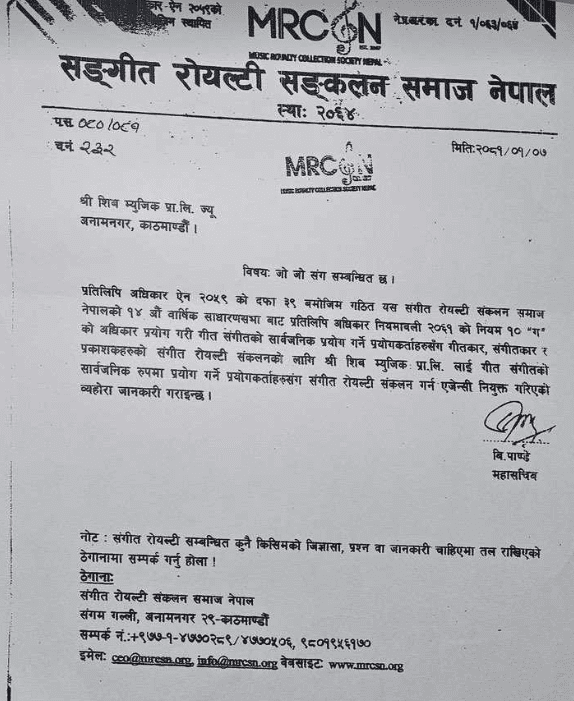
How did Shiva Music enter into the debate?
On May 19th, the Music Royalty Collection Society Nepal appointed Shiv Music Pvt. Ltd. to collect royalties on their behalf. This decision followed a period where royalties were not consistently collected, prompting the society to engage an agent. For the fiscal year 2080-81, they are collaborating with Shiva Music Pvt. Ltd. to enhance royalty collection efforts.
The society initiated a public process to solicit bids for royalty collection services, resulting in six companies and agencies bidding for the contract, ultimately selecting Shiva Music Pvt. Ltd.
"Shiva Music will actively pursue music royalties by engaging with television companies, radio FM stations, hotels, restaurants, party venues, entertainment centers, transportation services, and other commercial establishments where music is utilized," stated Pandey. He noted that royalty collection is now facilitated through over 100 representatives of Shiva Music nationwide, streamlining the process significantly.
In accordance with their responsibilities under Section 39 of the Copyright Act of 2059, the Music Royalty Collection Society Nepal, registered under the Copyright Registrar's office in 2064, is mandated to collect royalties on behalf of song creators. Shiva Music Pvt. Ltd. has been appointed to execute these duties under Rule 10 of the AI Act of 2061. They emphasize that music, being the intellectual property of its creators, requires prior permission for public use to avoid legal repercussions. The controversy arose when Shiva Music initiated a campaign to enforce royalty collection by sending letters to stakeholders, including schools like Small Heaven.
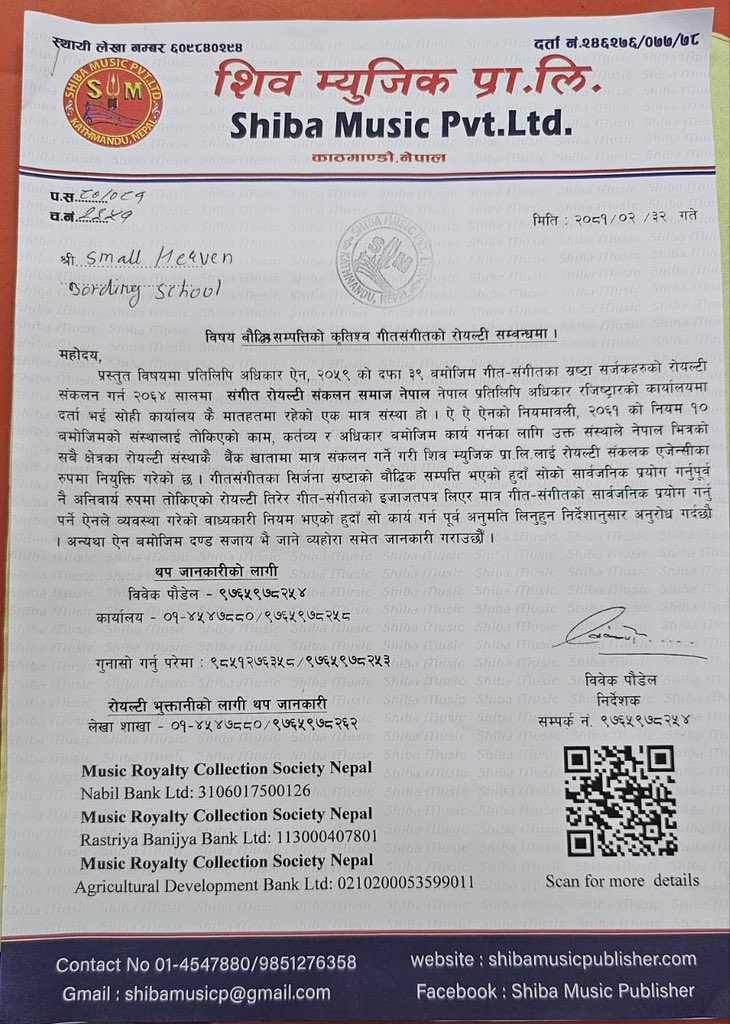
What does PABSON say?
DK Dhungana, chairman of PABSON, expressed support for respecting creators but stressed the need for thorough discussion. "Discussing royalties for school activities today could lead to other restrictions tomorrow, hindering the promotion of Nepali art and culture," he remarked. "If students do not dance to your songs, it will ultimately hinder your professional success," he added refering to the music creators. Dhungana emphasized the importance of balancing respect for creators with practical considerations, advocating for further dialogue on the matter.


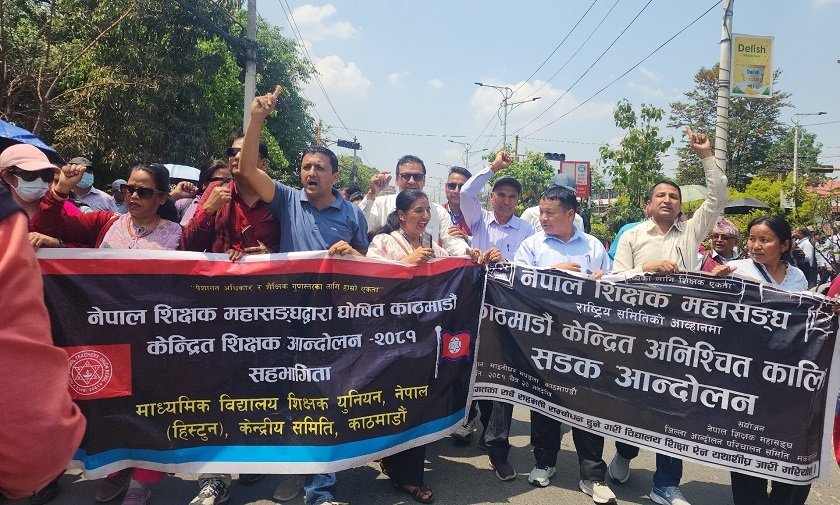
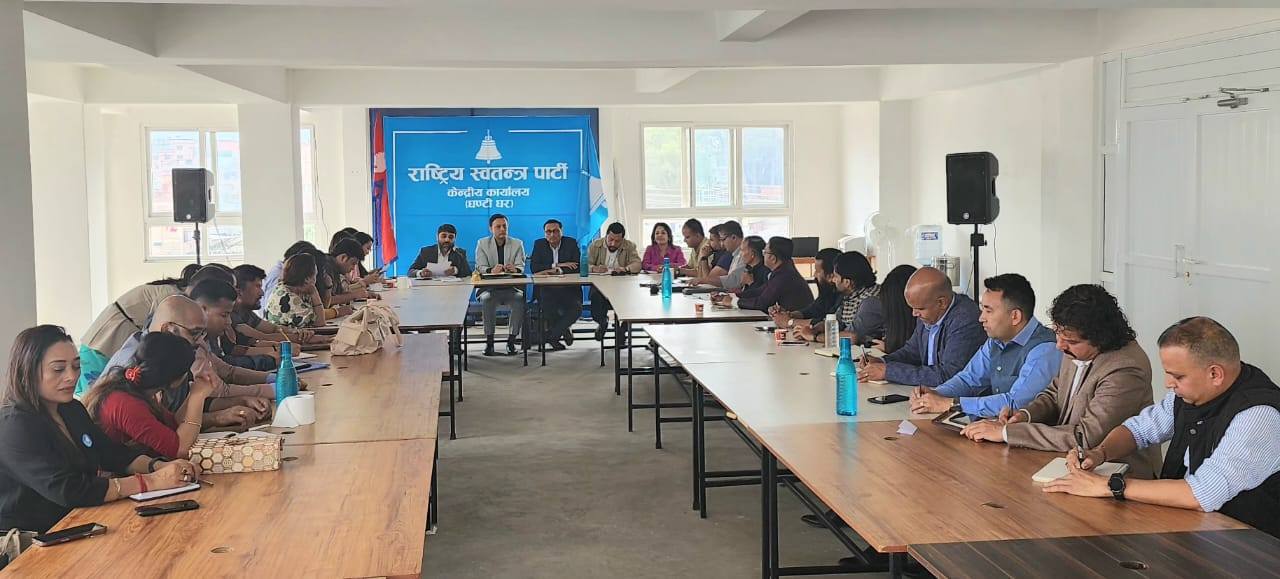




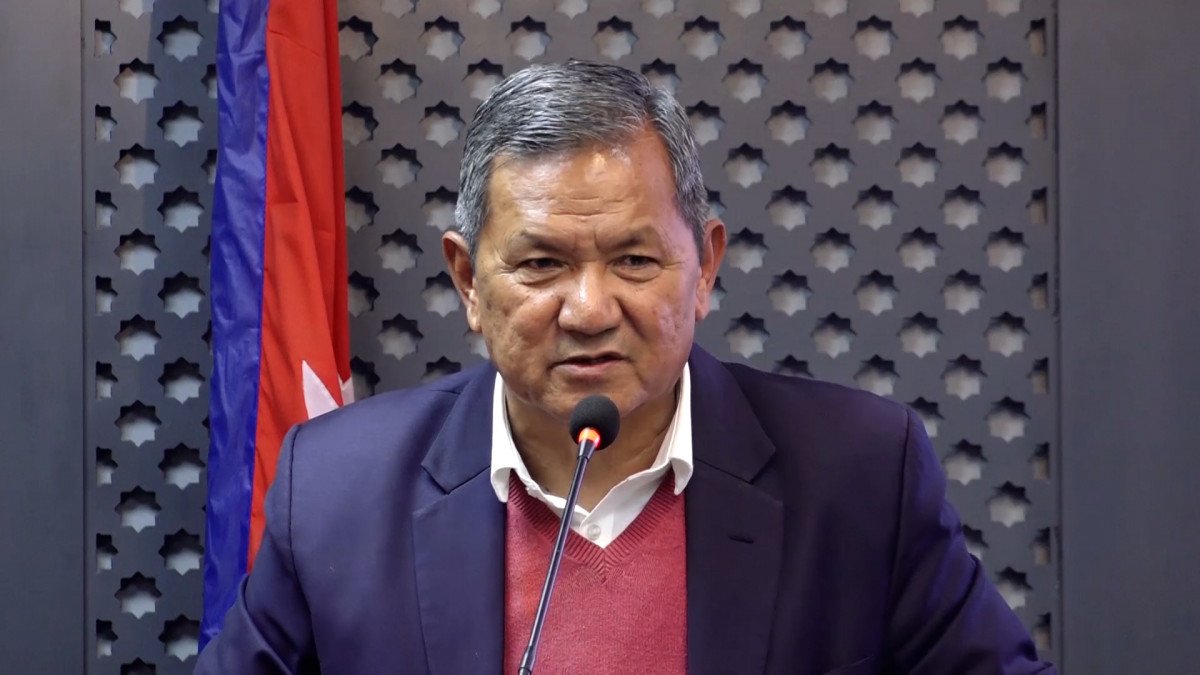
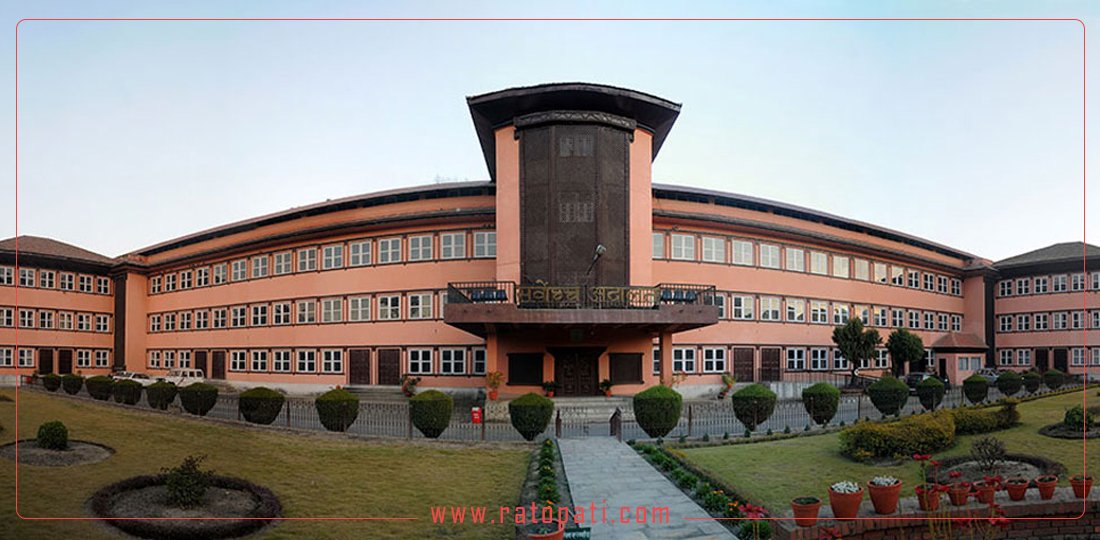
Leave Comment